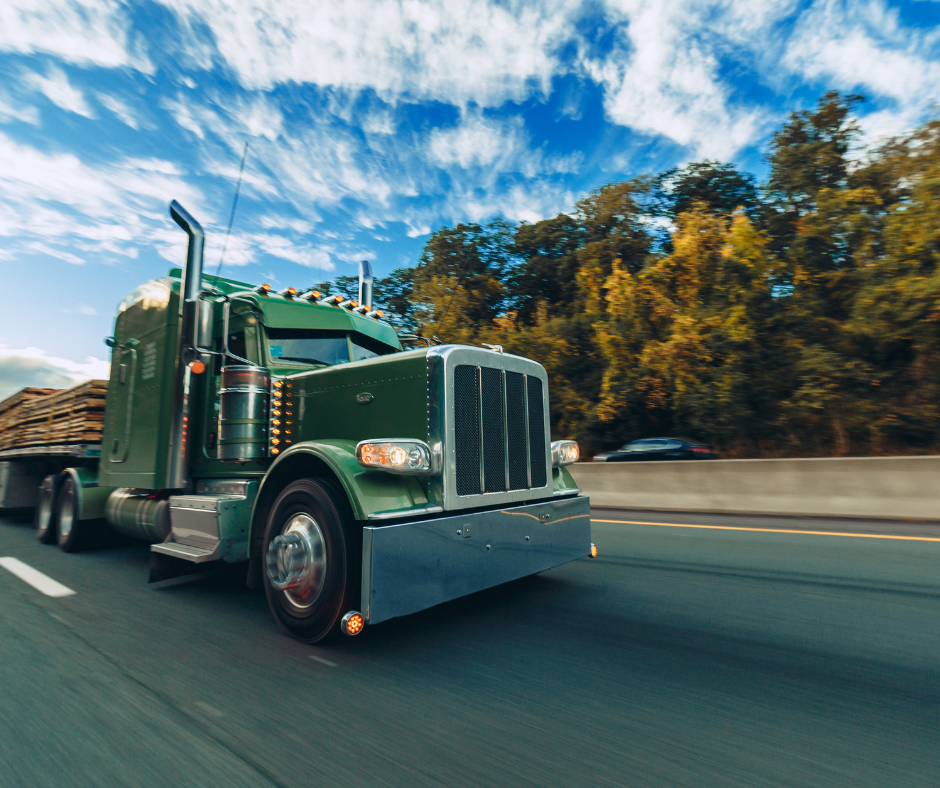What is a Motor Carrier (MC) Number? How Do I Get One?
- Eric Carter, Dr. Sean Goffnett, Samantha Allen
- Oct 26, 2022
- 4 min read
Updated: Jan 30, 2024
So, you’re considering entering the trucking industry, but don’t have a clue where to begin. You may have questions like, “What is an MC number? Why is the MC number important to my business? How do I get an MC number?” … Don’t worry, we’ve got you covered with a quick overview.

What is a Motor Carrier (MC) Number?
An MC number (MC, MX, FF) is an operating authority provided by FMCSA that dictates the type of operation a company may run and the cargo it may carry. MC numbers, operating authority, and trucking authority are terms that can be used interchangeably. Operating Authorities are permissions given to companies to transport passengers or cargo in interstate commerce. In other words, it grants a trucking company the ability to cross state lines with cargo on board. There are various types of operating authority which impact the level of insurance required by FMCSA. Choosing the right authority is important and based on the structure of your business. Common operating authorities include:
Motor Carrier of Property (Except Household Goods)
Motor Carrier of Household Goods (Moving Companies)
Broker of Property (Except Household Goods)
Broker of Household Goods
An entire list of authorities is listed on FMCSA’s website.
Is an MC number and DOT number the same thing? What's the difference between an MC number and a DOT number?
An MC number is not the same thing as a DOT number. In fact, a DOT number is one of the requirements to obtaining an MC number. USDOT numbers are provided by the U.S Department of Transportation and are unique to each company. DOT numbers are required for ALL commercial vehicles transporting cargo or passengers in interstate commerce. All intrastate vehicles that are used to transport the types and quantities of hazardous materials requiring a safety permit or if the vehicle has a gross vehicle weight/rating or gross combination weight/rating of 10,001 pounds or more (whichever is greater) will require a DOT number. Companies will operate under one unique DOT number; however, they may need multiple MC numbers to support business operations.
Who needs an MC number? Who doesn't need an MC number?
Not all carriers are required to have an MC number. Let’s take a look at some examples:
Intrastate Carriers – This is defined as carriers that only perform trade, traffic, or transportation exclusively in the business’s domicile state.
Private Carriers – This is defined as carriers that transport their own cargo.
For-hire Carriers that exclusively haul exempt commodities, which is defined as cargo that is not federally regulated.
Carriers that operate exclusively within a federally designated “commercial zone” that is exempt from interstate authority rules. A commercial zone is, for example, a geographic territory that includes multiple states bordering on a major metropolitan city.
How do I get my MC number? Where can I apply for my MC number?
The Unified Registration System is housed online and can be accessed via FMCSA’s website. For businesses that have not acquired a DOT number, the initial application must be filed here.
Applicants who are already registered for a USDOT number, or who are applying for an additional authority, can apply online using FMCSA’s legacy registration system.
Permanent authority fees are $300. Reinstating authority costs $80 and name changes have $14 fees. URS applications can take anywhere from 20-25 days unless subject to further review, and it is important to make sure all entered information is correct or run the risk of starting the process over from the beginning and losing any money spent.
Soshaul recommends the following steps to get your MC number:
Form your business: Make sure your business meets all the basic city and state requirements. Additionally, this is a good point in time to determine the structure of your business. A good company name goes a long way.
Apply for your DOT number: Remember, a DOT number is required when applying for other authorities. Best to get this part done as early as possible.
Get your Employer Identification Number (EIN): This is also known as a federal tax number.
Apply for Liability and Cargo Insurance: It is better to know if you will have insurance before the end of the process. If you do not have insurance at the end, you run the risk of doing all this hard work for no reason.
Apply for your MC number: Based on the structure of your business, apply for operating authorities that will support business activities. You can learn more about how to get your MC number here.
Ready to START, DRIVE, & ACCELERATE your trucking business? Check out our course here!

Interested in being notified when more free resources are available? Subscribe down below and you'll be the first to know!
Soshaul Logistics LLC and its affiliates do not provide tax, legal or accounting advice. This material has been prepared for informational purposes only, and is not intended to provide, and should not be relied on for, tax, legal or accounting advice. It is meant to serve as a guide and information only and Soshaul Logistics, LLC - Copyright 2023 - does not assume responsibility for any omissions, errors, or ambiguity contained herein. You should consult your own tax, legal and accounting advisors before engaging in any transaction or operation.




Comments